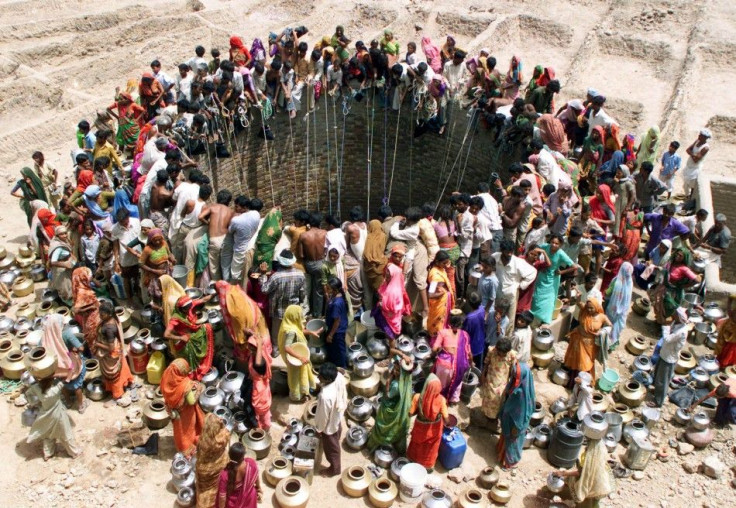World Water Day 2012: Facts & Ideas For A Sustainable Future

World Water Day 2012 is an annual event to celebrate something that most of us take for granted. It's a day for those of us in developed countries to step back and assess the facts of how much water we actually use in our daily lives.
We leave our water footprint in nearly all of our daily human activities from our morning shower to our evening meal.
A massive amount of water goes into the food we eat - far more than most people think. For instance, it takes about 1500 liters of water to produce 1kg of beef and, statistically, it takes a thousand times more water to feed the human population than it does to satisfy its thirst.
Did you know that almost a billion people are forced to spend countless hours scavenging for water each day, Matt Damon asks in his World Water Day public service announcement for Water.org. March 22 is World Water Day - a day dedicated to something so basic and simple that most people never give it a second thought: Clean water.
Damon's donated his voice to Water.org, an organization he co-founded, to encourage others to take action. The organization asks others to donate their voices this week to drive increased awareness.
The annual global holiday was first recommended to the United Nations Conference on Environment and Development (UNCED) in 1992. It was first celebrated in 1993 and each year is organized around a theme. Last year it was Water for Cities. For 2012, it's about food and water security.
The goal of the day is to focus attention on the importance of freshwater and to advocate for the sustainable management of freshwater resources.
One out of every eight people worldwide lacks safe drinking water and two out of every five people lack adequate sanitation.
Those who have better access to water tend to have lower levels of undernourishment and the lack of water can be a major cause of famine in areas where people depend on local agriculture for both food and income.
It's estimated that 40% of those living without safe drinking water reside in Sub-Saharan Africa and the global demand for water is growing. There are currently over seven billion people to feed on the planet and another two billion are expected to join by 2050, meaning 70% more food will be needed. By 2025, the UN expects that 1.8 billion people will be living in countries or regions with absolute water scarcity and two-thirds of the world's population could be living under water-stressed conditions.
The UN suggests several ways we can help including the need to reduce the roughly 30% of food produced worldwide that is lost or wasted every day. In several developing countries, a large portion of the food is lost between the farmers' fields and the market due to poor storage and transportation facilities. In more developed countries -- and in particular cities -- food is wasted by the consumer who is either not aware of or not sensitive to the resources needed to produce it.
World Water Day organizers say investing in water, sanitation, and hygiene programs is one of the smartest investments in tight economic times because communities with safe drinking water and adequate sanitation see tangible progress in children's health, school attendance, and local economic development. They argue that every $1 invested yields an average of $8 in increased economic productivity and averted healthcare costs.
Not all the news is bad on World Water Day. A report released earlier this month noted that over two billion people gained access to improved drinking water sources between 1999 and 2010.
While the road may be long, each small step is making a difference.
As the ancient Chinese philosopher Lao Tzu put it: In the world there is nothing more submissive and weak than water. Yet for attacking that which is hard and strong nothing can surpass it.
For ancient Greek poet Pindar it was quite simply the best of all things.
For something so essential to all of life, it is only fitting that once a year the world takes a moment to contemplate this mysterious and essential life-giving compound.
How are you celebrating World Water Day 2012? Share your experiences in the comments below.
READ ALSO:
The Best (And Worst) Places To Be A Woman in 2012
7 Billion People on Earth by Oct. 31, 2011: The Population Challenge
© Copyright IBTimes 2025. All rights reserved.






















